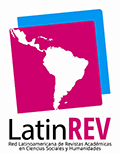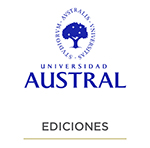Dignity, Justice, and Legality: Challenges to the Objectivity of Legal Argumentation in a Context of Moral Fragmentation
DOI:
https://doi.org/10.26422/RJA.2025.0601.tejKeywords:
human dignity, human rights, interpretation, objectivity, abortion, assisted suicideAbstract
In this interview, Dr. Pilar Zambrano reflects on various issues related to the concept of human dignity. She highlights its resurgence and attributes this phenomenon to the rise of so-called judicial activism or neoconstitutionalism, a paradigm in which justice tends to prevail over formal legality, and where dignity is elevated as a hermeneutical criterion to justify expansive constitutional interpretations. Among other topics, the jurist addresses the conceptual ambiguity of dignity and the risks associated with the arbitrary derivation of rights from an imprecise notion. She also emphasizes the need to promote objective legal interpretation and argumentation, grounded in essential dimensions of the human person, capable of providing solid reasons for legal action. On a theoretical level, Dr. Zambrano analyzes the contributions of Ronald Dworkin and John Rawls regarding the concepts of dignity and personhood, acknowledging their insights while pointing out their limitations—particularly the absence of an adequate anthropological foundation. Finally, she takes a position on controversial issues such as abortion and assisted suicide, arguing that these practices compromise the core of human dignity. In closing, she underscores the importance of legal philosophy in the education of law students and highlights the central role of teleological interpretation in contemporary legal practice.
Downloads
References
Alexy, R. (1989). Teoría de la argumentación jurídica: La teoría del discurso racional como teoría de la fundamentación jurídica. Centro de Estudios Constitucionales.
Barak, A. (2013). Human Dignity: The Constitutional Value and the Constitutional Right. En McCrudden, C. (Ed.), Understanding Human Dignity (pp. 361-380). Oxford University Press.
Cianciardo, J. (2024). Interpretación convencional y populismo: una aproximación desde el caso Beatriz. En Ranieri de Cechini, D. y Calderone, S. (Dirs.), El aborto ante la Corte IDH: a propósito del caso "Beatriz vs. El Salvador” (pp. 53-79). El Derecho.
Dworkin, R. (1977). Los derechos en serio (Trad. M. Gustavino). Ariel.
Hume, D. (1992 [1739]). Tratado de la naturaleza humana. Tecnos.
Lafferrière, N. y Lell, H. (2021). Los usos del término dignidad en la jurisprudencia de la Corte Interamericana de Derechos Humanos. Opinión Jurídica, 20(43), 315-348.
McCrudden, C. (Ed.). (2013). Understanding Human Dignity. Oxford University Press.
Marmor, A. (2005). Interpretation and Legal Theory (2ª ed.). Hart Publishing.
Marmor, A. (2009). Social Conventions: From Language to Law. Princeton University Press.
Ratzinger, J. (2008). Discurso preparado por el Santo Padre Benedicto XVI para el encuentro con la universidad de Roma La Sapienza. Cauriensia, III(2008), 535-542.
Rawls, J. (1995 [1993]). Liberalismo político (Trad. S. R. Madero Báez). Fondo de Cultura Económica.
Rawls, J. (2006 [1971]). Teoría de la justicia (Trad. M. D. González, 2ª ed.). Fondo de Cultura Económica.
Raz, J. (1990). Practical Reason and Norms (2ª ed.). Oxford University Press.
Raz, J. (2004). Incorporation by Law. Legal Theory, 10, 1-17.
Sandel, M. J. (1998). Liberalism and the Limits of Justice (2ª ed.). Cambridge University Press.
Serna, P. (1995). La dignidad de la persona como principio de derecho público. Derechos y Libertades, 4, 287-306.
Tasioulas, J. (2013). Human Dignity and the Foundations of Human Rights. En McCrudden, C. (Ed.), Understanding Human Dignity (pp. 291-312). Oxford University Press.
Vigo, A. G. (2020). Conciencia, ética y derecho. En Estudios sobre Kant, Fichte y Hegel, Reason and Normativity. Olms.
Zambrano, P. (2007). Objetividad en la interpretación judicial y objetividad en la moral. Una reflexión a partir de las luces y sombras de las propuestas de Ronald Dworkin. Persona y Derecho, 56, 281-326.
Zambrano, P. (2022). La dignidad como concepto gozne entre el discurso moral y el discurso jurídico: Apuntes para el uso válido, conveniente y transparente del concepto de dignidad en la argumentación judicial. Prudentia Iuris, 94, 309-344.
Downloads
Published
Issue
Section
License
License Creative Commons Atribución-NoComercial-SinDerivadas 4.0 Internacional (CC BY-NC-ND 4.0).
This license allows the copy, distribution, exhibition and representation of the work provided authorship is acknowledged and the work is properly quoted. Commercial use of the original work or the generation of derived works are not allowed.
The authors hereby guarantee the right to the first publication of the work to the Revista Jurídica Austral.













































